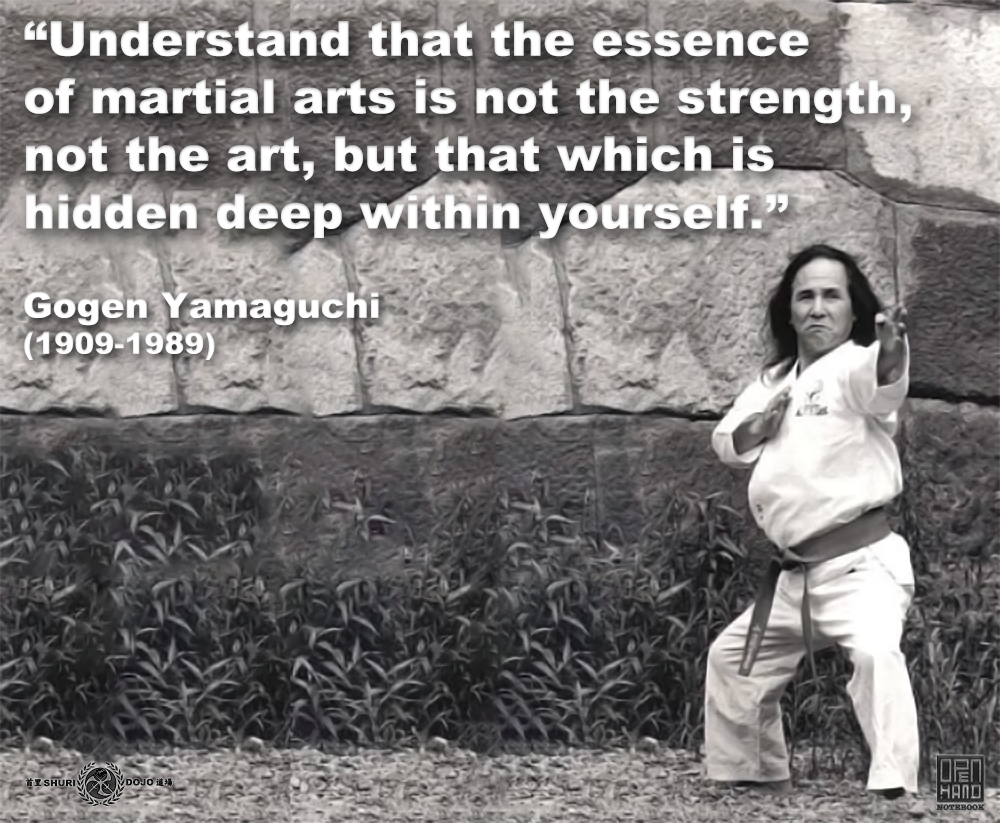
When you finally find what’s absolutely right for you in your martial arts training and you internalize it, you don’t need to rationalize why you do it.
.
I practice every day religiously, I train for me. Not to fight anymore, not for how it looks and not for what others might think of me, or what I do. It’s deeply personal, there is no ‘reason’ or logic because I know intuitively that I have got it right and it’s saved my life on more than one occasion, and the battleground has changed as life has progressed.
.
To really internalize the martial arts takes a lifetime of activity and study, it means to learn and practice until the very end. It requires full dedication to the art. You have to make time for it, make martial arts your priority, make sacrifices.
.
The martial arts are just like any skill or trade, in that it can never truly be mastered. There are masters, but they too know there is always something else to improve upon.
.
For anyone to continue with martial arts throughout life, provides the chance of learning many subjects….. discipline and dedication are right at the top of the list. The martial arts are a skill that is applicable to everything….. and if you stay loyal to anything for a lifetime, it can build an extensive character.
.
That amount of character is invaluable, in that it improves your input to every aspect of life. A person who can dedicate themselves to something and truly commit genuinely has a life-changing ability.
.
Having a good knowledge and understanding of yourself, including being aware of your own feelings and character, is self-awareness. Practicing self-awareness is about learning to better understand why you feel what you feel, and why you behave in a particular way.
.
Having this awareness gives you the opportunity and freedom to change things about yourself, enabling you to create a life that you want. It’s almost impossible to change and become self-accepting if you are unsure as to who you are. Having clarity about who you are and what you want, can be empowering, giving you the confidence to make changes.
.
For me karate has to be practical, and I would suggest that the very first step in making your karate practical would be to clearly identify your own specific requirements for training, which may well be different to mine and change over time.
.
My own definition of practical karate, first and foremost is its use as a system of self-protection. However, I have other goals for training too, but more often than not I’ve found that these tend to grow from this principal objective.
.
When I talk about ‘self-protection’, I’m referring to this in a holistic sense and not simply the combative components of training. For me, the protection of ‘self’ also covers challenges such as managing physical health and wellbeing for longevity, attaining stability of mind, body and spirit.
.
On balance, the most problematic threats we are likely to face on a daily basis (stress, obesity, anxiety, depression etc.) are to be found much closer to home than the stereotypical knife-wielding street thug, unless in daily life you are within a particularly risky environment.
.
The self-protection aspects of martial arts may be used as an effective pathway for more rounded development and I think it’s important to think this way. But as pragmatists, we must also be sure to stay aligned to the principal combative objective.
.
Find your own art, don’t be afraid to do your own personal study, and after rigorous practice, discard what doesn’t fit and that which you can’t internalize.
.
You need to find that which progresses your understanding of what life is and what you are doing here. That is the only question, and the answer only comes with insight….. your training and practice is to enable you to gain that insight – then everything else falls into place.![]()
![]()
.
.
Inspired by and with thanks to Steve Rowe and Chris Denwood.
.
.
